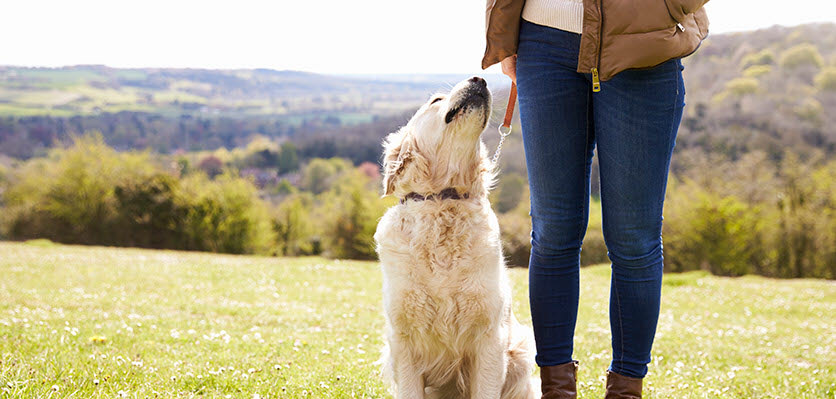
Senior dogs are generally defined as any small dog over the age of 8 and any medium or large dog over the age of 5 or 6. Senior cats are generally considered any cat over the age of 9 or 10. If your pet falls into any of these categories, take a moment to read our ‘red flags’ to discover if your senior pet might need an extra check-up with the veterinarian.
1. Struggling to get out of bed in the morning
If your pet is taking far longer than usual to rise, it might indicate joint stiffness and arthritis. Arthritis is a common ailment for older pets and it can significantly impact their quality of life. If you find that cooler weather is making your pet move slowly or rest more than usual, make an appointment with your veterinarian to check their mobility.
2. Losing weight
The general rule of thumb is, unless you’re trying to get your pet to lose weight through a weight loss plan, any decrease in weight or body condition should be a red flag. Older pets are susceptible to developing degenerative conditions or diseases that result in weight loss such as kidney disease (both dogs and cats), thyroid disease (cats) and cancer (both dogs and cats).
It can be hard to tell what is going on from the outside, but often weight loss is a feature of these conditions. Any unexplained weight loss or muscle loss in your older pet should prompt a check-up with your veterinarian.
3. New symptoms (e.g. increased thirst, coughing etc.)
Like weight loss, any new symptoms or signs should always prompt a check-up with the veterinarian. Signs often start quite subtly, such as your cat starting to drink more water than usual or your dog not being able to tolerate as much exercise as normal.
Increased thirst, exercise intolerance or coughing are all indicators that something might have changed inside your pet’s body. As many conditions that develop later in life are progressive, the earlier you catch a disease process, often the better the response from treatment. If you suspect your senior pet is showing a new behaviour or symptom, such as drinking more than usual or pulling up from their walk sooner than normal, make an appointment to see your veterinarian.
Although pet insurance is always a good idea to cover any unexpected veterinary expenses, check the fine print of your pet’s policy to ensure they are covered after eight years of age. Only some pet insurance policies provide full coverage beyond eight years of age, so it’s best to check early to avoid any unexpected surprises.
As many conditions can change in a year, we strongly recommended that all senior pets visit the veterinarian at least annually.
